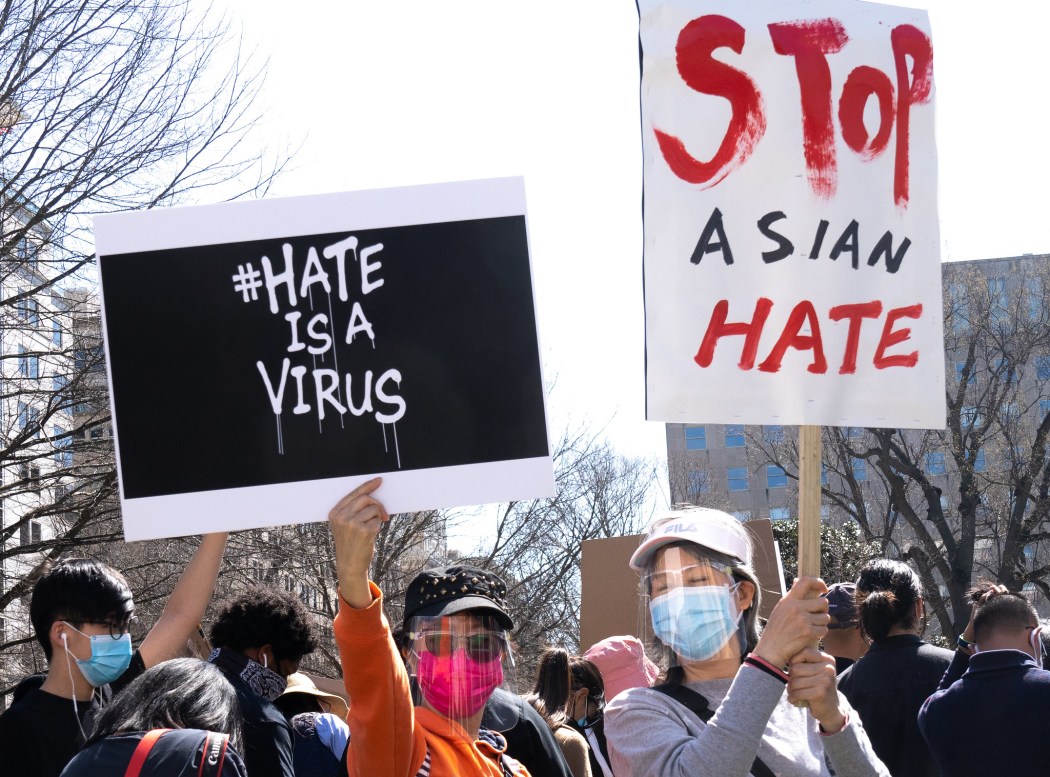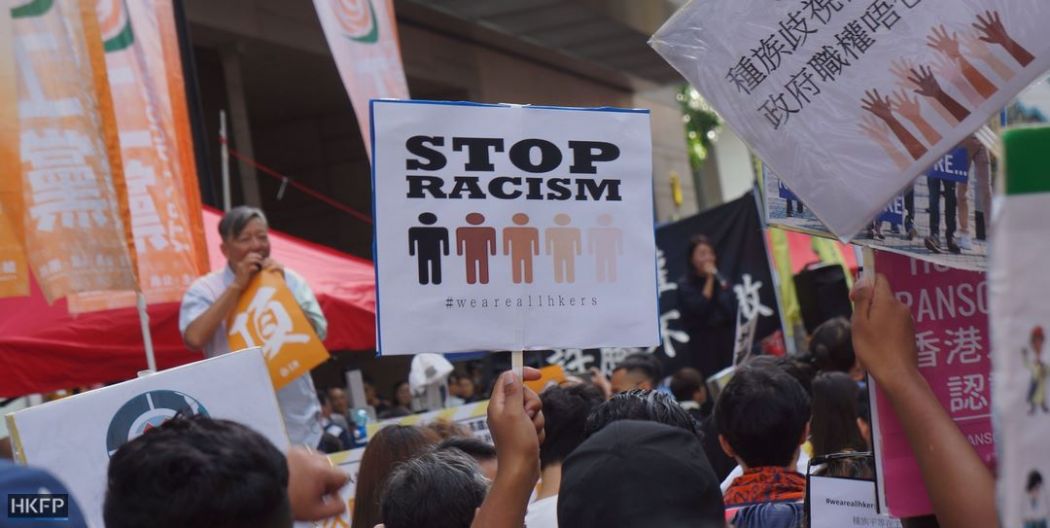With the “Stop Asian Hate” movement coming on the heels of the Black Lives Matter movement, I am dismayed at the inherent nature of human beings, which leads them to look at differences and create divisions.
“Stop Asian Hate” is not just a US or Europe challenge. It is simply the latest edition of a phenomenon that encompasses stereotypes and discrimination against ethnic and religious minorities seen everywhere, including within Asia.
It should give us all pause for introspection.

As I reflected on the whys and wherefores of this new round of intolerance, I tried to understand some of the root causes of racism in our time. I came up with four theories.
Firstly, human beings like to have someone to blame when things go wrong. Society needs scapegoats and racial and religious minorities become targets. History has enough examples of this. Hong Kong has seen its fair share of racial stereotyping and discrimination targeted against certain sections of its own population over the course of the pandemic.
Secondly, they say ignorance breeds racism, but in my opinion, it is sometimes information or rather incomplete or mis-information that foments racism. Words and the imagery they invoke matter, as seen by the choice of terms such as the name given to the virus in the early days based on its supposed origin.
Closer to home, we are familiar with the danger of making public remarks based on limited cultural awareness about a particular group or community, causing them to become a target of collective anger.
And as for social media, every day we are made more aware of its power to spread misinformation and falsehoods that can have dangerous consequences. The very fact that agencies for fact-checking have been set up in different countries and governments across the world are contemplating legislation to regulate content should make us doubly cautious.

Thirdly, racism thrives on our tendency to see “otherness”. We see differences and create categories. It is interesting though that these categories are subjective and vary depending on one’s perspective, place and time. You may be put into the same box as the one you see as “other” by someone with a different perspective.
The fact that all East and South-East Asians in the US are being targeted in the mistaken notion that they are all Chinese is a case in point. I cannot help but notice the irony of it given that in Hong Kong we constantly see the “otherness” of people from our neighbouring countries, most prominently the Filipino and Indonesian foreign domestic workers, who are invariably afforded different treatment.
A mature society should have the ability and wisdom to acknowledge, accept and celebrate differences. I am sorry to see even the most advanced of countries slip up in that respect so often.
Finally, people are not very good at recognising racism in themselves. Most people claim to be non-racist as they do not engage in the kind of overt racism that everyone associates with the term. However, they do not see their own biases and do not realise that behaviour, words or action that stem from those biases could be racist.

Excluding someone from an activity due to his or her race, refusing to sit next to someone who appears to be of a minority race, declining to rent premises to someone from an ethnic minority community are all reflections of racial bias and translate into actions and behaviour that amount to racism.
Why should we only sit up when we see racism manifested as violence? We should be equally angry when we see daily micro-aggressions directed at our racial minority colleagues or racially insensitive service or plain impoliteness when dealing with someone who looks different from the majority.
We need to de-immunize ourselves from such behaviours so we can react and be outraged, just as we are when we see the blatant violence that instigated the Stop Asian Hate or the Black Lives Matter movement.
Racism is a tough subject to talk about but unless we have these conversations, we have little chance of moving forward. Simply because Hong Kong has not had race-related agitation on the scale that we are seeing in other parts of the world does not mean racial discrimination does not exist here. We should not delude ourselves.
What we can do is educate ourselves, open ourselves to learning about others. Not simply because some day we could be the minority in another country but because human beings do best when they collaborate and create, not destroy.
Support HKFP | Policies & Ethics | Error/typo? | Contact Us | Newsletter | Transparency & Annual Report | Apps
Help safeguard press freedom & keep HKFP free for all readers by supporting our team
| HKFP is an impartial platform & does not necessarily share the views of opinion writers or advertisers. HKFP presents a diversity of views & regularly invites figures across the political spectrum to write for us. Press freedom is guaranteed under the Basic Law, security law, Bill of Rights and Chinese constitution. Opinion pieces aim to point out errors or defects in the government, law or policies, or aim to suggest ideas or alterations via legal means without an intention of hatred, discontent or hostility against the authorities or other communities. |

More HKFP OPINION:
HKFP has an impartial stance, transparent funding, and balanced coverage guided by an Ethics Code and Corrections Policy.
Support press freedom & help us surpass 1,000 monthly Patrons: 100% independent, governed by an ethics code & not-for-profit.










